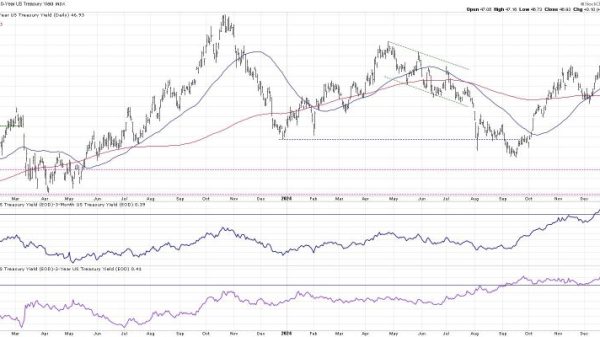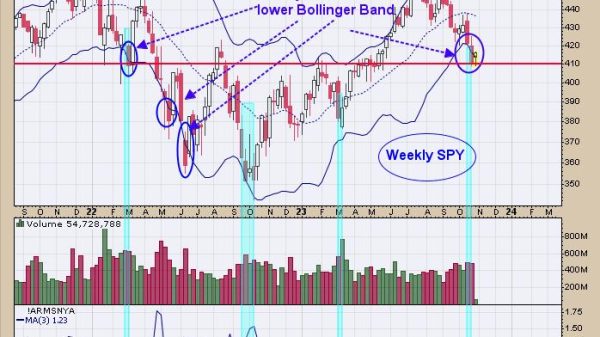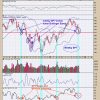Social Security recipients and others on fixed incomes will soon see a slight increase in their monthly benefit checks from the U.S. government.
Starting in January, the estimated average monthly retirement benefit will increase by 3.2%, or $59 a month, for 2024 — from $1,848 to $1,907.
The new amounts, the result of the agency’s annual cost-of-living adjustment (COLA), will kick in next month on a staggered, weekly basis, according to when a recipient’s birthday occurs.
The latest COLA increase pales in comparison to the 8.7% increase recipients saw for 2023. That’s because inflation has been falling over the past several months. The annual COLA is calculated based on inflation readings for July, August and September. In those months, the relevant measure of 12-month inflation clocked in at 2.6%, 3.4% and 3.5%, respectively.
Yet despite the more recent slowdown of price increases, many Americans on fixed incomes, especially seniors, will continue to struggle financially even as inflation slows into 2024, experts and economists say.
Since mid-2020, average prices in the U.S. have climbed more than 20%. Yet, the total Social Security cost-of-living adjustment has increased just 17.8% over the same period.
‘There is some very sticky inflation,’ said Mary Johnson, Social Security and Medicare policy analyst for the Senior Citizens League, a nonpartisan advocacy group.
Seniors are especially vulnerable to the rising cost of housing, with the average older person spending 49% of their household budget on shelter, Johnson said. Even as other categories of inflation have slowed or even reversed in recent months, shelter costs have continued to trend upward. In September, a key measure of shelter costs increased by 0.6%, the largest rise since February, after a 0.4% gain in August.
Mark Zandi, chief economist at Moody’s Analytics, said that while many higher-income seniors have likely weathered the recent inflationary period, many low- and middle-income seniors — especially those on fixed incomes — have not.
‘It’s been a really tough three or four years, and that continues,’ Zandi said of those cohorts.
Next year’s Medicare Part B premium adjustments will further erode savings from those monthly Social Security checks. Following a rare year in which the premium was reduced, the standard monthly Part B rate will increase by about $10 to $174.70.
The formula for setting the annual COLA increase was established some five decades ago. The Senior Citizens League has said that, over time, spending categories that more directly impact seniors, especially health care costs, have increased at a faster rate than others.
The league has calculated that, as a result, Social Security benefits have lost more than 30% of their purchasing power since 2000.
Government economists have created — but not implemented — an alternative index, called the Consumer Price Index for the Elderly (CPI-E), which puts greater weight on senior-focused categories. Currently, there is no active congressional legislation pushing a switch to CPI-E.
The Senior Citizens League nevertheless estimates that a senior who filed for Social Security with average benefits over 30 years ago would have received nearly $14,000 more in retirement if the CPI-E had been used.
However, the CPI-E has slightly trailed standard measures of inflation since the pandemic, climbing 18.4% since mid-2020 — meaning the cost-of-living adjustments seen in recent years would have been slightly smaller.
Still, Johnson and the league say many seniors remain vulnerable, especially since they are less likely to be able to take on additional work to boost income.
“Housing, motor vehicle insurance, the cost of hospitals and care of [disabled persons] at home — these are the savings-draining black holes even when inflation is low,” Johnson wrote in a recent Senior Citizens League report.
“Yet these are the very categories seeing the most persistent and painful inflation right now.’





























